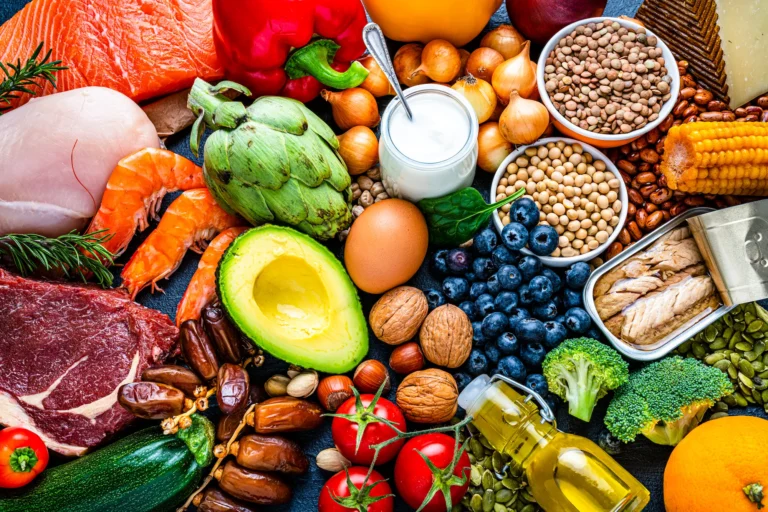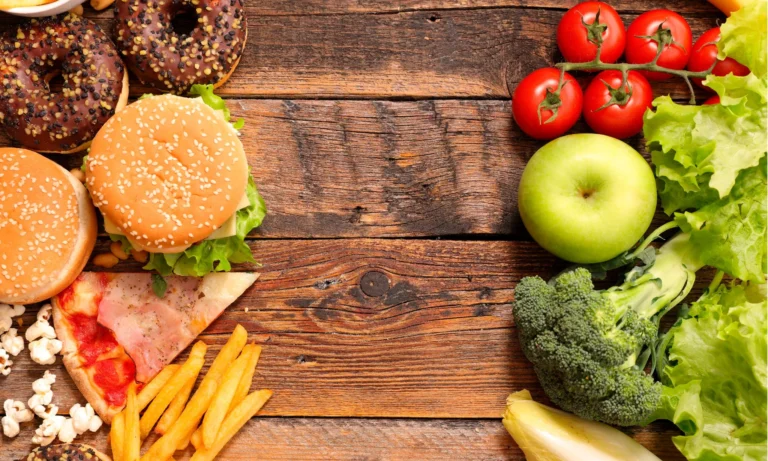Healthy Eating Habits: A Complete Guide to Nourishing Your Body and Mind
A right diet is actually the basis of a healthful, vigorous, successful existence. They are not only related to health, but also are vital for mental and emotional health and happiness.

This is particularly because with so much information there is on the subject of ‘Healthy Eating’, the process can at times seem monumental when in fact it is just relative to; individual perception.
In this ultimate guide, I will explain all the basics of choosing the right diet for you, answering frequently asked questions, and giving practical advice.
Why Are Healthy Eating Habits So Important?
A healthy diet is needed for growth, to replace stressed cells, regulate essential physiological processes and protect against many types of poorly curable illnesses.
Apart from the above, taking healthy food is associated with better moods and less stress as well as better focus and working capacity.
In fact, that’s one of the most important ways of knowing that eating healthy food means not only having a stunning appearance but also being active, healthy, and full of energy.
This encompasses the kind of food you put into your system – the body and the brain needs energy.
1. Overcoming Barriers to Healthy Eating
Time Constraints
Many people struggle to eat healthily because they feel they don’t have enough time. Meal prepping, choosing simple recipes, and using a slow cooker or instant pot can help.
Budget Challenges
Healthy eating doesn’t have to be expensive. Buy in bulk, choose seasonal produce, and look for sales on nutritious staples like beans, rice, and frozen vegetables.
Social Situations
When dining out or attending gatherings, focus on moderation. Enjoy small portions of indulgent dishes while prioritizing healthier options.
Cravings and Emotional Eating
Understanding your triggers is the first step to managing cravings and emotional eating. Find healthier ways to cope with stress, such as exercise, meditation, or talking to a friend.
2. Long-Term Benefits of Healthy Eating Habits

The long-term benefits of healthy eating habits go far beyond weight management. A nutritious diet reduces the risk of chronic diseases like heart disease, diabetes, and certain cancers.
It also enhances energy levels, supports mental health, and improves skin health.
By focusing on consistency rather than perfection, you can enjoy a lifetime of good health and happiness.
3. Practical Healthy Recipes to Get You Started
Here are a few simple, nutritious recipes to inspire your healthy eating journey:
1. Quinoa Salad with Roasted Vegetables
- Ingredients: Quinoa, mixed vegetables (zucchini, bell peppers, carrots), olive oil, lemon juice, salt, and pepper.
- Directions: Cook quinoa according to package instructions. Roast vegetables in olive oil and seasoning. Mix together and drizzle with lemon juice.
2. Overnight Oats
- Ingredients: Rolled oats, almond milk, chia seeds, honey, and your favorite toppings (fruits, nuts, or cinnamon).
- Directions: Combine oats, milk, chia seeds, and honey in a jar. Refrigerate overnight and add toppings in the morning.
3. Baked Salmon with Asparagus
- Ingredients: Salmon fillet, asparagus, olive oil, garlic, lemon slices, salt, and pepper.
- Directions: Place salmon and asparagus on a baking sheet. Drizzle with olive oil, sprinkle with garlic, and bake at 375°F (190°C) for 20 minutes.
4. Tips for Building Healthy Eating Habits

1. Plan Your Meals
You can spare a few minutes to plan your meals for the week; trust me, it will make all the difference. Besides, it saves time and money and allows envisioning specific nutritional decisions, with dozens of options suggested to you every time.
2. Stay Hydrated
Drinking water might be the most underrated practice, and however, it is a significant aspect of a healthy lifestyle. Isn’t the obvious and yet the most neglected tip – ‘Take water all through the day and avoid taking more sweetened beverages.’
3. Practice Portion Control
Even healthy foods if consumed in large quantities can cause ones weight to increases. Choose lightweight plates, do not take seconds or regain servings and pay attention to the feelings of hunger.
4. Cook at Home
This is true in the sense that cooking at home enables you to exercise some control over what you and your family take and how they are prepared.
5. Incorporate More Whole Foods
Include as many unprocessed or processed only once products such as fruits, vegetables, whole grains, lean meats, and nuts. These are rich in nutrients but contain no added sugar or preservatives to its formulation.
6. Limit Added Sugars and Salt
Overconsumption of sugars and salt is known to cause different health complications. Choose foods with natural flavor enhancers as compared with processed foods that use artificial additives.
7. Bring back beauty and flavour to your eating habits once again.
Do not eat when in front of a screen, any screen. Savor your food, but as a cautionary way, slow eating may prevent one from taking more bites than needed, and also aids in digestion.
FAQs About Healthy Eating Habits
Here are some common questions about healthy eating, answered to help you make informed decisions:
1. What exactly is a balanced diet?
A balanced diet includes a variety of foods from all the major food groups: fruits, vegetables, grains, proteins, and healthy fats. It provides the nutrients your body needs to function optimally.
2. Can I eat carbs and still be healthy?
Absolutely! Carbohydrates are an essential energy source. Focus on complex carbs like whole grains, oats, quinoa, and legumes, which provide fiber and nutrients. Avoid refined carbs such as white bread and sugary snacks.
3. How do I start eating healthier?
Begin by making small, gradual changes. For instance, swap sugary drinks for water, include an extra serving of vegetables in your meals, or choose whole-grain options instead of refined grains.
4. How do I manage cravings while trying to eat healthy?
Cravings are natural and can be managed by eating balanced meals, staying hydrated, and finding healthier alternatives to your favorite treats. For example, replace chips with air-popped popcorn or ice cream with frozen yogurt.
5. Should I avoid fats altogether?
Not at all. Healthy fats, like those in avocados, nuts, seeds, and fish, are essential for brain health, hormone production, and overall well-being. Avoid trans fats and limit saturated fats.
6. How can I maintain healthy eating habits while dining out?
Look for menu options that include plenty of vegetables, lean proteins, and whole grains. Ask for dressings or sauces on the side, and choose grilled, baked, or steamed dishes over fried ones.
7. What are the best snacks for a healthy lifestyle?
Opt for nutrient-rich snacks such as a handful of nuts, fresh fruit, yogurt with honey, hummus with veggie sticks, or a boiled egg. These keep you full and energized.
8. Can meal prepping help with healthy eating?
Yes! Meal prepping is an excellent way to save time, reduce food waste, and ensure you always have nutritious meals ready to go.
9. How do I encourage healthy eating in my family?
Lead by example. Prepare balanced meals, involve family members in meal planning and cooking, and make healthy foods enjoyable with creative recipes.
10. Is it okay to indulge occasionally?
Yes, balance is key. It’s perfectly fine to enjoy your favorite treats occasionally as part of a healthy diet.
Conclusion
Eating a healthy diet is a process and not a one time activity. As you make conscious changes, the goal is to help change your relationship with food to ensure that it’s a great and healthy one.
Always keep in mind that it’s not about the best but the better, every small change counts. Maybe you’re just starting to learn what it means to eat better or maybe you already know the drill — every small victory matters.
Begin now and learn to love the process of taking care of yourself and your thoughts.







